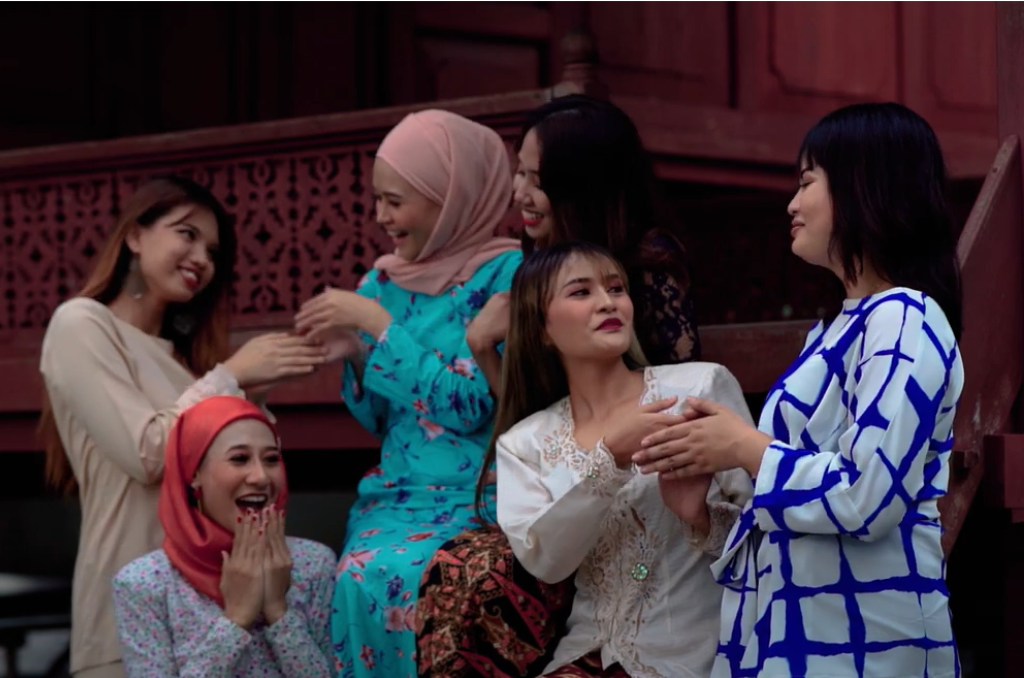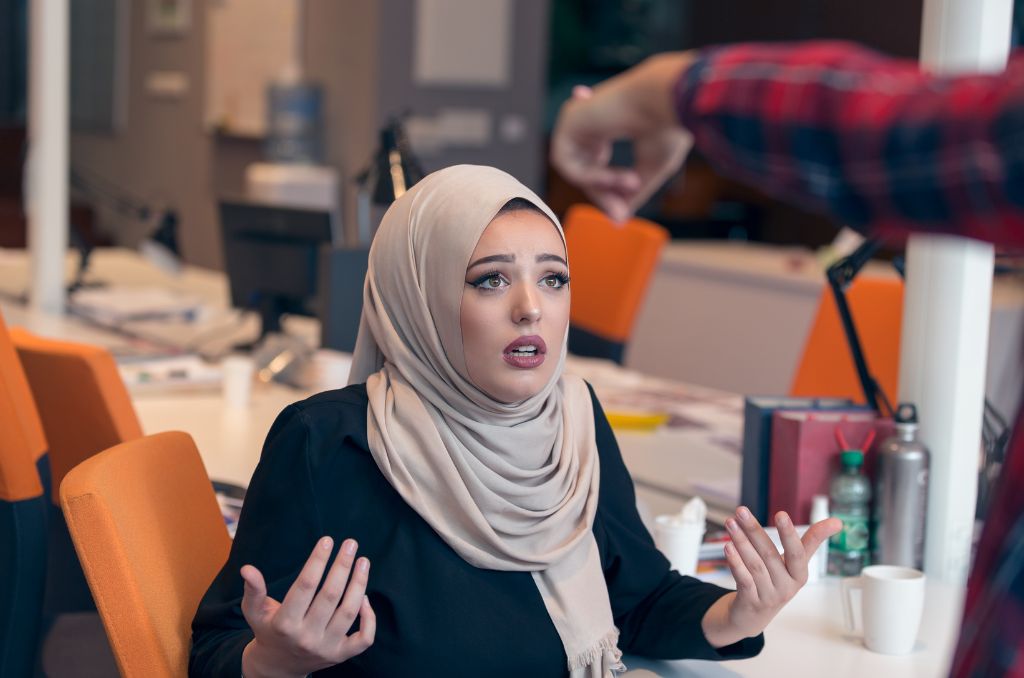
Part one
I attended the Eid al-Fitr prayer in the United States for the first time on August 19, 2012. The impact of the prayer, my friend’s comment, and what I saw on that day, drove me to conduct my own crusade against the bigotry of the U.S. media toward Muslims.
I knew I was so bothered by my friend’s comment. More than revenge, I wanted to prove to myself that what he said was wrong.
My small family and Shams, my friend at the University of Wisconsin, drove to the Marriott Hotel in Madison, WI, to attend the Eid prayer. My daughter was still a toddler, my husband was completing his psychiatry fellowship at the University of Wisconsin, and I was a senior graduate student at the journalism school while interning for Wisconsin Public Radio. Shams was my Iranian friend from the Middle Eastern department at UW Madison, WI.
The Western media portrays Muslims as terrorists, which influences the public opinion of both Muslim Americans and politics affecting Muslims at home and abroad.
I moved to Madison with my family after living in Seattle for eight short years. My husband and I lived our entire lives in Tehran before then. We had already left behind our friends and a few family members in Seattle, and we were utterly homesick for Tehran. Religion was the only common space between us and the new world in Wisconsin. So, we decided to attend the Eid prayer. Shams was a social and energetic student at UW. He attended almost any social gatherings I knew. As soon as he knew we were going to the prayer, he wanted to join us.
The prayer happened on Sunday. It was the only time off for my husband, from his brutal residency working hours. I didn’t have pressing assignments at the radio station or for my classes. And, I wanted to celebrate my one month of fasting.
We were in the car, just arrived at the Marriott Hotel’s vast and spacious parking lot. People, mostly Muslims, were in their cars waiting to enter the parking lot.

All of a sudden, Shams said something that jolted me. “Wow, look at how many terrorists are here!”
My husband and I nodded, smiling bitterly. We knew that he was completely joking. He was Muslim, like ourselves. He prayed and attended social and religious activities on campus.
His comment was influenced by the barrage of news stories we heard on TV and radio about a recent attack in Iraq that was claimed to have been conducted by the Islamic State of Iraq. Only three days ago on August 16, a car bomb in Baghdad killed 128 people and injured 417 others. It was one of the deadliest attacks since the US ended its war in Iraq in Dec. 2011.
The United States was just getting started with a new proxy war against ISIS, the Islamic State of Iraq and Syria. The news cycle was full of US attacks against Iraqis and Muslims in the Middle East.
Had I been influenced by the terrorism label that the media was imposing on me?
I could excuse Shams’s sarcasm. But I couldn’t wrap my head around his brutal comment. Although I nodded at his comment earlier, I started thinking about what he said as we were moving down the car line. “He views Muslims as terrorists,” I thought. “I wonder how much he has internalized the label promoted by the U.S. media. How much have we, my husband and I, been influenced by the label?”
Media outlets frequently associate Muslims with political violence and terrorism. These media portrayals influence public opinion of both Muslim Americans and politics affecting Muslims at home and abroad, according to Media Portrayal of Minorities Project published in 2021. Had I been influenced by the terrorism label that the media was imposing on me?
I didn’t confront him then. I was in a celebratory mood. I didn’t know how to address the contested issue without getting into an angry verbal back and forth. I didn’t want to ruin the Eid for us. However, I felt deeply sad.
A sail of no return
Back in Tehran, my dad would take us to my grandparents’ house on the south side of Tehran for the Eid al-Fitr prayer. They lived in a well-kept, cozy old house in a low-income neighborhood. Both of my grandparents on my dad’s side were well-known in their neighborhood. My grandma was famous for her all-women tea and prayer ceremonies that happened every first Thursday of the month. Women in the neighborhood would come over to drink tea, read the Qur’an, and gossip.
My grandma had a specially-made chador for my sister and Ito wear during the prayer. We would gladly pack our prayer bags and go to the mosque with her and my mom.
Women greeted me and my daughter so warmly. Everyone was so kind and happy, just like the women in my grandma’s mosque.
From the moment we walked through the door, all the way to where we settled for our prayer, more than 80 women greeted my grandmother with “Salam haji khanoom,” “How are you?” “Oh, these are your grandchildren?” “Wow, they’ve grown so much!” and so on.
Haji is a respectful phrase for the people who’ve gone on the Haj pilgrimage. And, “Khanoom” means “Miss” in Farsi. Both my sister and I received special attention while being with our grandma to her mosque.
Inside the mosque I still remember that every woman was wrapped inside a black chador, a large garment women wear over their clothes. Sometimes they changed into a white chador with a flower print. However, there was very little color or variety. Things were very different in Madison a few decades later.
I entered the large ballroom at the Marriott Hotel, carpeted and ready for the prayer. I could not hide my surprise. I can still remember how my eyes were wide open, and my mouth was dry. I was utterly surprised.
Colorful and Happy, Were these people Muslims?
In the women’s section, I was so surprised to see women wearing dresses in many colors and styles. One woman matched the different shades of orange in the silk silhouette with her headwear, which she wore like a crown. A woman in beautiful emerald green wore matching emerald stones. One woman wore pink attire with bright stones on the fabric. Another wore an expensive silk sapphire gown with matching pants.
“How could anyone call these people terrorists?” I thought. “Why have we internalized terrorism? How can we get ourselves out of this bullshit?”
Women greeted me and my daughter so warmly. I talked with many of them. Everyone was so kind and happy, just like the women in my grandma’s mosque. As I engaged in conversations, I couldn’t distance myself from the questions that kept repeating in my head.
I called the radio station right after we left the ballroom. “Why is there no one here to write a story about the Eid celebration?” I asked the news desk.
“Nothing new is happening. The celebration takes place every year during Eid,” my colleague said.
Thinking about the statement she just made, I was angry.
“I guess we would have been all over the place if there was a terrorist attack conducted by a crazy lunatic Muslim,” I murmured. “But if they celebrate, we are silent.”
“I’m going to do something about it,” I promised myself. Those were my last thoughts.
To be continued …
Please Pledge to Our Peace Journalism.
Goltune is editorially independent. We set our agenda. No one edits our editors. No one steers our opinion. This is important as it enables us to stay true to our values.
Every contribution we receive from readers like you, big or small, goes directly into funding our journalism. Please support Goltune, large or small.
Send your contributions to our PayPal account: [email protected]
Or, Click the link to pledge your support.
Thank you,
Goltune Editorial Team






